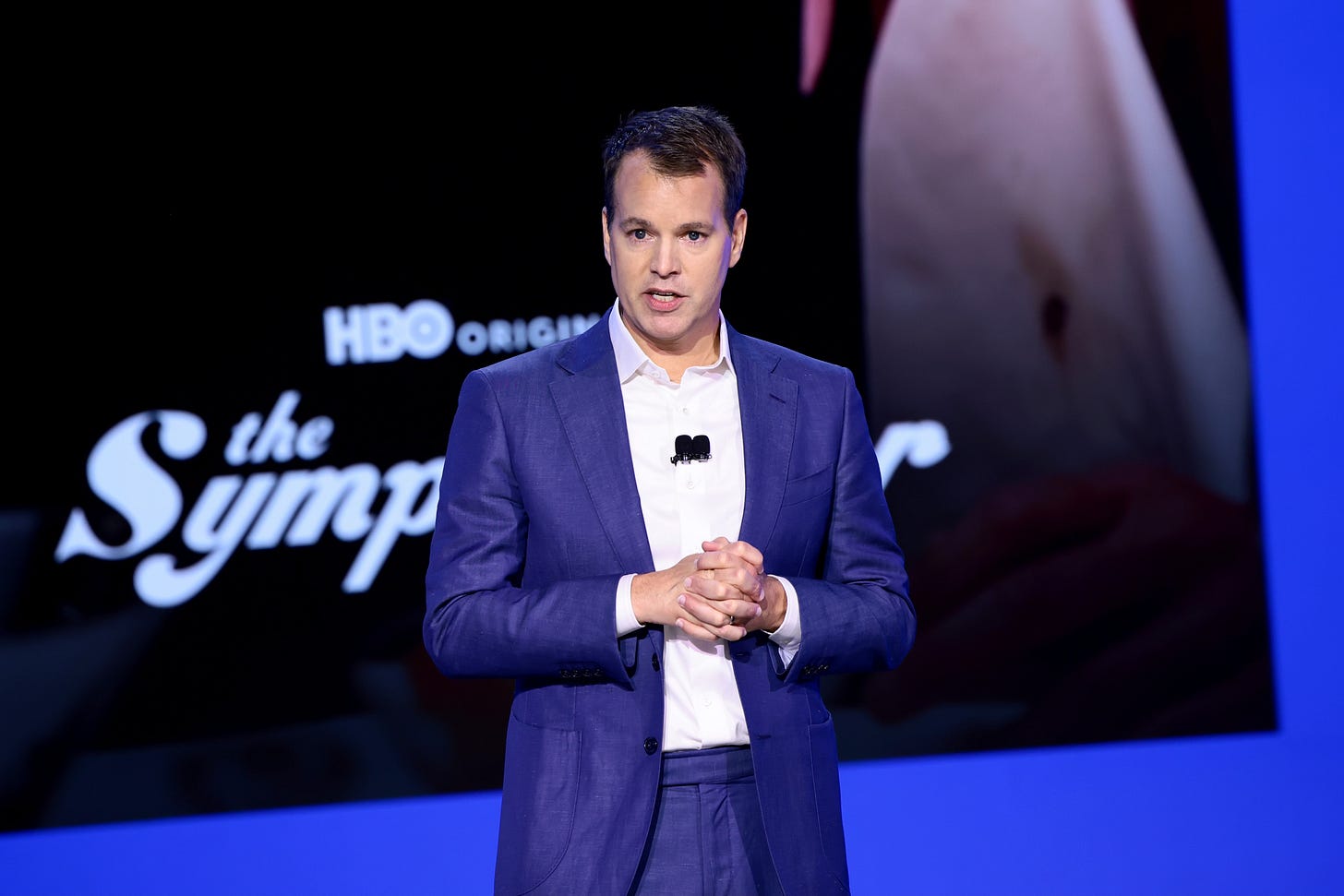Casey Bloys to Face Reporters Amid Fake Tweets Drama
A plaintiff accused HBO's chief of ordering the trolling of TV critics under fabricated personas

In a case of awkward timing, Casey Bloys is scheduled to appear before dozens of reporters tomorrow morning in New York, a number of whose outlets were targets of an embarrassing Twitter scheme allegedly concocted by the HBO and Max chairman and CEO, and revealed in a bombshell Rolling Stone story that dropped on Wednesday. The Ankler has learned from a source close to Bloys that he will in fact face the music on Thursday morning at a presentation of HBO’s 2024 content slate at which the 19-year HBO veteran will both present and field questions from the press and have some explaining to do (if lawyers allow).
The Rolling Stone story revealed that Bloys — one of the most powerful and respected executives in the industry — and his senior vice president of drama programming, Kathleen McCaffrey, coordinated online responses to critical reviews and comments about the company by setting up dummy social media accounts to push back against writers at publications like New York Magazine, The New York Times and Rolling Stone. The article included several text exchanges between Bloys, McCaffrey and a former HBO executive assistant named Sully Temori, who was tasked with setting up the fake accounts and who is now suing HBO (the text exchanges were included in Temori’s suit, alleging wrongful termination). In one exchange, McCaffrey wrote to Temori that Bloys is “obsessed with Twitter” adding that “He always texts me asking me to find friends to reply… is there a way to create a dummy account that can’t be traced to us to do his bidding,” she asked.
The story, which centered on the lawsuit, paints Bloys as a petty and thin-skinned executive incapable of brooking any criticism of HBO’s shows or of his leadership style. “His highness needs another one. We need our friend to call out Alan for Mare,” McCaffrey texted on another occasion referring to Rolling Stone critic Alan Sepinwall who had written critically about the HBO show Mare of Easttown. All the fake accounts that were set up over the years ultimately led Bloys to think that he ruled over a “secret army” that he could then sic on his critics, according to the Rolling Stone article.




